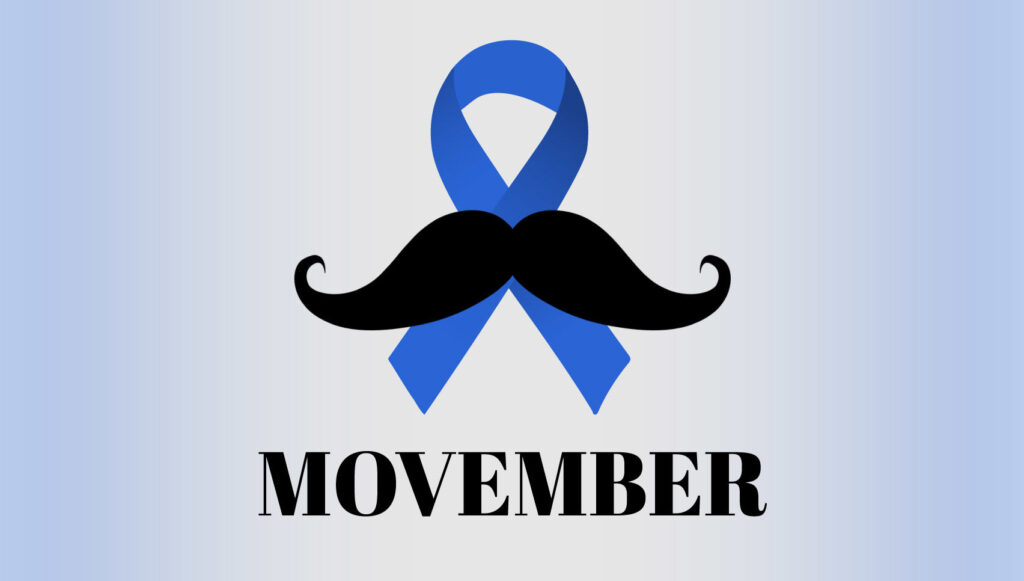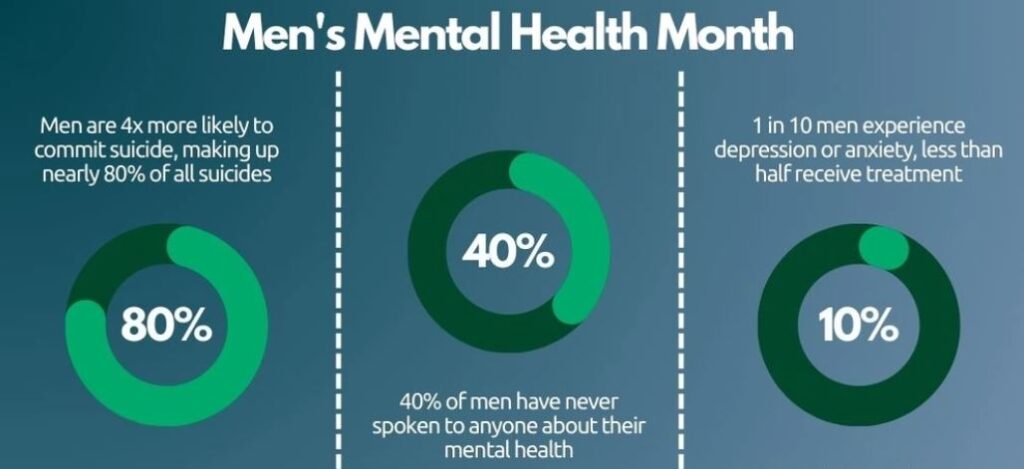- Posted on
 In the realm of mental health, an essential yet often overlooked facet is men’s mental well-being. The stigma surrounding mental health issues has long hindered open discussions, particularly when it comes to men. However, it’s time to break the silence and recognize the significance of prioritizing men’s mental health, especially since it’s Movember!
In the realm of mental health, an essential yet often overlooked facet is men’s mental well-being. The stigma surrounding mental health issues has long hindered open discussions, particularly when it comes to men. However, it’s time to break the silence and recognize the significance of prioritizing men’s mental health, especially since it’s Movember!
Acknowledging the Stigma: Men are often expected to embody qualities of strength, resilience, and stoicism. The societal pressure to conform to traditional masculinity can lead to the suppression of emotions, making it challenging for men to seek help when facing mental health struggles. The stigma surrounding mental health issues is a formidable barrier, preventing many from opening up about their experiences.
Diverse Mental Health Challenges: Mental health knows no gender boundaries, and men, like anyone else, can grapple with a spectrum of challenges. From anxiety and depression to more severe conditions like bipolar disorder or schizophrenia, men’s mental health concerns are diverse and multifaceted.
Suicide Rates and Silent Suffering: Men, tragically, often bear the brunt of alarming suicide rates. The reluctance to express vulnerability can result in silent suffering, leaving many men feeling isolated and overwhelmed. Addressing men’s mental health is not only about preventing suicides but fostering an environment where seeking help is seen as a sign of strength rather than weakness.

Impact on Relationships: Unaddressed mental health issues can strain relationships, impacting both personal and professional spheres. Recognizing the interconnectedness of mental well-being and healthy relationships is crucial for fostering a supportive and understanding environment.
Challenging Societal Norms: Embracing men’s mental health involves challenging deep-rooted societal norms that dictate how men should express themselves. Encouraging vulnerability and emotional expression dismantles the toxic expectations that contribute to the stigma surrounding mental health.
Workplace Well-being: Men’s mental health is intricately tied to workplace well-being. The pressures of professional life can exacerbate mental health challenges. Creating mental health-friendly workplaces, promoting work-life balance, and offering support resources can positively impact men’s mental health in the workplace.
Seeking Professional Help: Encouraging men to seek professional help is pivotal. Whether through therapy, counseling, or support groups, breaking the stigma requires normalizing the idea that everyone, regardless of gender, can benefit from mental health support.

Communication is Key: Effective communication is at the heart of addressing men’s mental health. Encouraging open dialogue, providing platforms for sharing experiences, and fostering active listening create an environment where men feel seen and heard.
Promoting Self-Care: Men’s mental health is intricately linked to self-care. Encouraging activities that promote well-being, from physical exercise to mindfulness practices, empowers men to prioritize their mental health in their daily lives.
Redefining Strength: It’s crucial to redefine strength in the context of men’s mental health. True strength lies in acknowledging one’s vulnerabilities, seeking help when needed, and fostering resilience through emotional well-being.
The importance of men’s mental health cannot be overstated. Breaking down the barriers of stigma, fostering open communication, and promoting self-care are essential steps toward creating a society where men feel empowered to prioritize their mental well-being. By challenging societal norms and embracing a more inclusive and empathetic approach to mental health, we contribute to a future where everyone, regardless of gender, can thrive emotionally and psychologically. It’s time to break the silence and build a world where men’s mental health is a priority.
If you or someone you know would benefit from speaking to a a professional, please don’t hesitate to contact us. Here at Prague Integration, we have many qualified therapists who are happy to help. Let’s eliminate the stigma and normalize men seeking the help they need.



